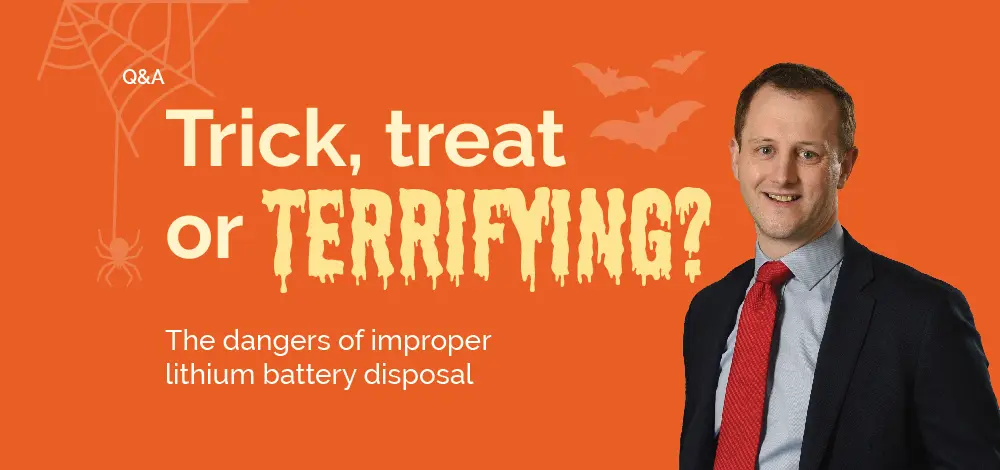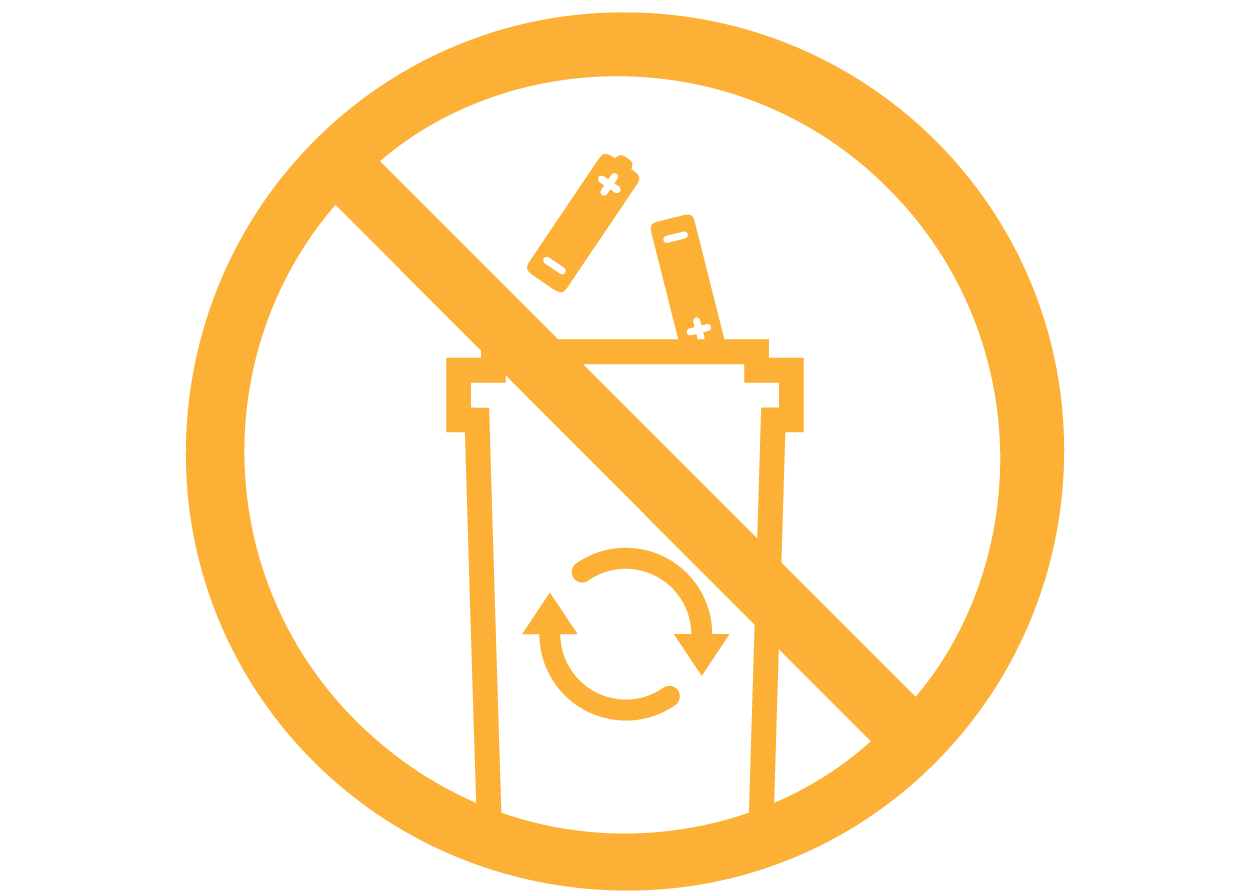This Halloween, beware the lurking menace of lithium batteries. With light up lanterns and eerie electronics in high use, it’s crucial to ensure your business is properly disposing of lithium batteries.

At Grundon, we’re seeing an increasing number of items containing lithium batteries, primarily vapes, in our Material Recovery Facilities (MRFs). Misplacing these items in mixed recycling or general waste bins poses significant health and safety risks to our personnel, vehicles, and facilities.
Owen George, our Commercial & Resource Strategy Divisional Manager, witnesses these challenges daily at our MRFs and in this article, he underlines the importance of correctly handling lithium batteries. Avoid incorrect disposal by following Owen’s expert guidance and help keep the Halloween frights purely fictional.
1. Why should we be careful throwing away lithium batteries?
Lithium batteries are widely used and whilst they’re useful, what some don’t realise is if they end up in a general waste or mixed recycling bin, they can cause serious harm. When these batteries are processed, they can get crushed, and certain types like lithium-ion batteries might explode or ignite, putting workers at waste facilities at serious risk.
This happens because of something called thermal runaway, where the battery heats up intensely and produces gases. If batteries are exposed to too much heat, squeezed too tightly, or damaged in any way, they can chemically react and cause this intense heating. In 2023, lithium batteries caused 1200 fires in waste vehicles and facilities in the UK – that’s nearly double from the year before!

2. What are some common items that contain lithium batteries but are often over-looked?
Chances are, you’ve got lithium-ion batteries in things like laptops, phones, and power tools at your workplace – pretty much anything with a rechargeable battery. Recycling them at specialist facilities or with a dedicated electronic waste service is key, not just to recover valuable materials, but also for mitigating the health, safety and environmental risks.
Halloween tends to highlight these issues as we see a surge in electronic decorations and gadgets with lithium batteries. Any LED props used this Halloween, like light up costumes, candles or wreaths are likely to have lithium batteries as their power source. So, when it’s time for disposal, make sure to separate those out first.
3. What’s the proper way to dispose of lithium batteries?
The right way to dispose of lithium batteries is to keep them separate from all other waste and recyclables. This ensures they’re processed safely and that we can salvage valuable materials from them. If you’re handling this in a business setting, remember that lithium batteries are classed as hazardous waste. To stay compliant, it’s best to work with a trusted waste provider, like Grundon, who can take care of lithium battery disposal for you.
In a household setting, you should drop them off at one of the specific collection points meant just for battery recycling. It’s important to treat these batteries with care, make sure they’re not damaged or punctured before recycling. Taking these steps helps ensure everyone’s safety.

How Grundon can help?
For businesses looking to navigate the complexities of lithium battery and electronic waste disposal, Grundon provides expert hazardous waste collection and disposal services, helping you minimise your environmental impact by safely recycling and recovering valuable materials at our state-of-the-art facilities. We can provide a variety of UN-approved containers in different sizes, customised to accommodate your specific requirements.
This Halloween, don’t let your batteries cause terror, dispose of them safely and responsibly.
